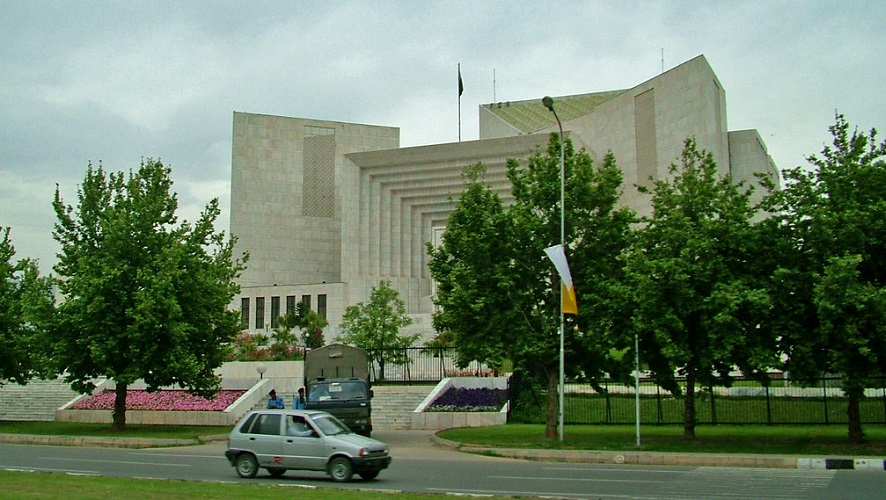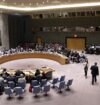Supreme Court Demands Clarity on Military Trials of Civilians
The Supreme Court’s six-member bench, led by Justice Aminuddin Khan, delves into the intricacies of military trials involving civilians linked to the tumultuous events of May 9. Amidst a flurry of appeals and objections, the court seeks transparency in the legal proceedings, shedding light on a contentious issue at the intersection of civil liberties and national security.
At the heart of the legal discourse lies the trial of 103 civilians accused of involvement in attacks on army installations
In a pivotal session on Monday, the Supreme Court convened to scrutinize the military trials of civilians allegedly implicated in the events of May 9. Led by Justice Aminuddin Khan and comprising esteemed justices, the six-member bench embarked on a comprehensive examination of intra-court appeals challenging the nullification of military trials, a decision rendered unanimously on October 23.
At the heart of the legal discourse lies the trial of 103 civilians accused of involvement in attacks on army installations during the upheaval following the arrest of former Prime Minister Imran Khan. The case, which has garnered widespread attention and legal debate, underscores the delicate balance between security imperatives and constitutional rights.
Last year’s landmark ruling by a five-member Supreme Court bench unequivocally declared military trials of civilians unconstitutional. However, subsequent developments, including conditional suspensions and appeals, have injected complexity into the legal landscape, prompting renewed judicial scrutiny.
The proceedings witnessed a spectrum of stakeholders presenting their arguments before the bench. Notable appearances included Khawaja Ahmed, representing former Chief Justice Jawwad S. Khawaja, and Attorney General for Pakistan Mansoor Usman Awan, alongside other counsel advocating for their respective clients’ interests.
A pivotal moment unfolded when the Khyber Pakhtunkhwa (KP) government sought to withdraw its appeal against the October 23 verdict, presenting a resolution endorsed by the provincial cabinet. However, the court emphasized procedural formalities and deferred a final decision, signaling the nuanced intricacies inherent in legal proceedings of such magnitude.
The court’s meticulous inquiry extended to the fundamental rights of the accused and procedural fairness, with Justice Khan advocating for transparency and adherence to due process. Amidst discussions on bench composition and jurisdictional delineations, the pursuit of justice remained paramount, underscored by Justice Hilali’s assertion on the protection of human rights.
The apex court’s directive to furnish comprehensive details of military court verdicts and acquittals by March 28 signifies a crucial step towards judicial clarity and accountability. As legal deliberations continue, the nation awaits the outcome with bated breath, cognizant of the profound implications for civil liberties and the rule of law.



